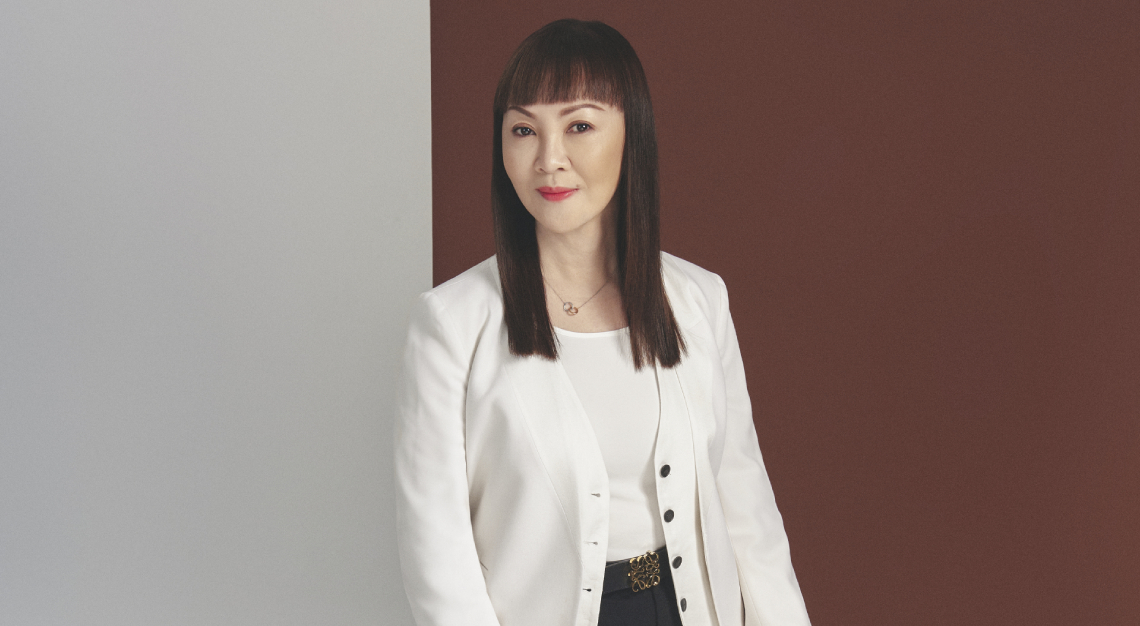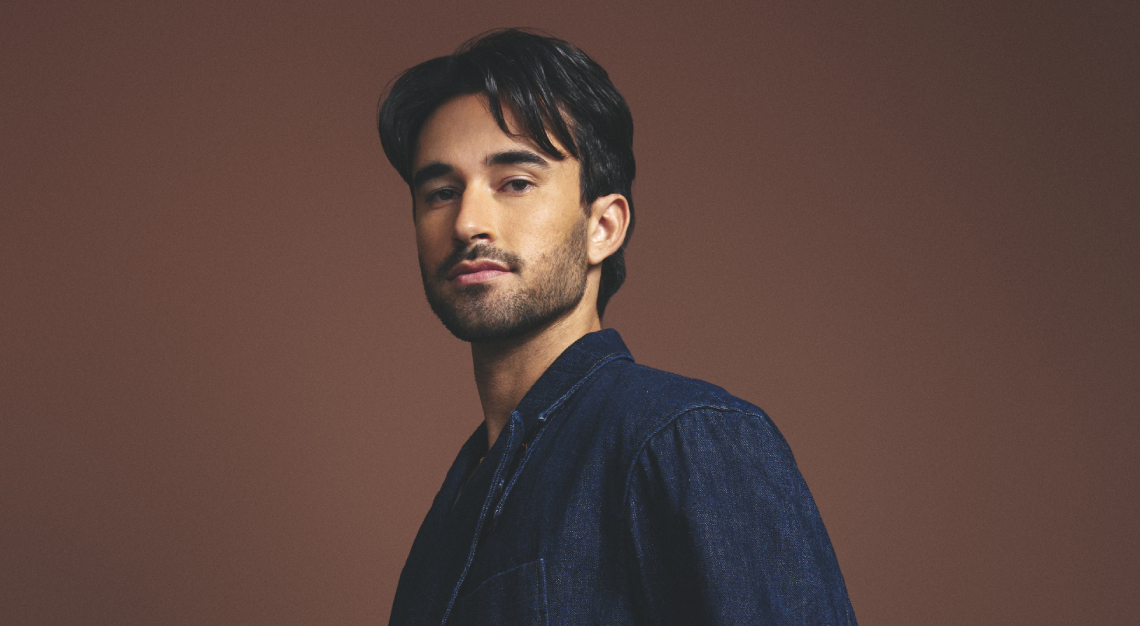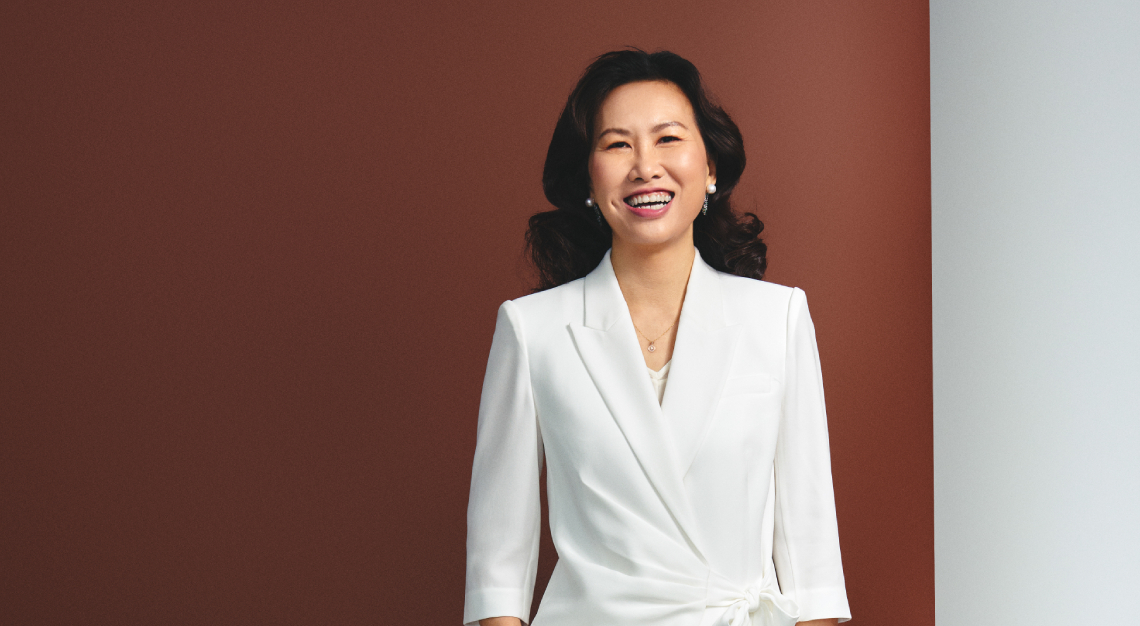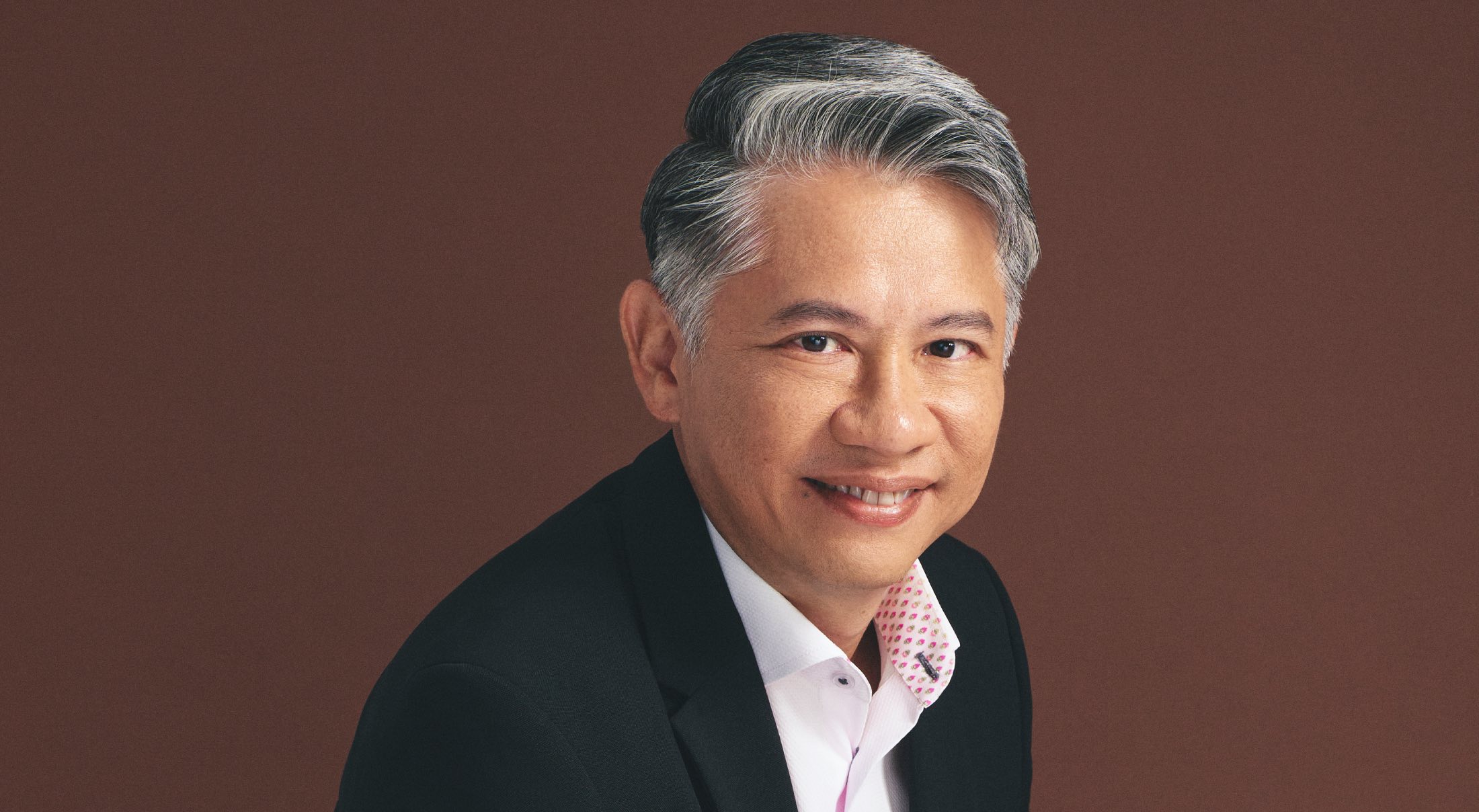“Vent, wallow, and replay every detail. Consider alternatives. Setbacks are detours, not dead ends.” – Karen Cheah
Driven by resilience, innovation and a knack for seeing challenges as opportunities, Karen Cheah is determined in her mission to turn waste into worth via AlterPacks, a start-up that produces eco-friendly packaging.
Sustainability isn’t a mere buzzword at AlterPacks; it is a genuine commitment embedded in its operations and values. Backed by Temasek Foundation and SMU’s Institute of Innovation & Entrepreneurship, the company has developed a proprietary technology that uses a mixture of spent grains and agricultural waste that is converted into plant fibre material that can be used for rigid packaging. The product is internationally certified to be home compostable and food contact safe by the US FDA and Singapore Food Agency.
As the driving force behind AlterPacks, Cheah brings decades of experience in business development, marketing, and communications to the sustainability industry. With a career distinguished by over 60 international awards, including the John Hendricks Innovation Award for CSR initiatives in conservation, Cheah’s expertise and extensive knowledge has helped transition AlterPacks from the lab to reality. “We’re ready to say goodbye to traditional plastics and hello to a whole new way of thinking about eco-friendly materials,” she says.
Describe a defining moment in your career.
A defining pivot was when I decided to do my MSc in Innovation. It launched me from media creative to leading a sustainability startup during the pandemic. Despite the challenges, witnessing our innovations make a positive impact has been incredibly validating. The experience of taking a startup from a mere whiteboard idea to a tangible, real-world product, is truly extraordinary too.
What is the best advice you’ve ever received in your career?
Never assume anything.
What do you see in the crystal ball for your industry?
Fossil fuels will continue to feel the heat, and climate tech will go mainstream. I expect bio-based alternatives, AI-powered design, and a new way of thinking about sustainability.
What is a big obstacle in the climate tech management business?
One of the biggest hurdles is bridging the gap between awareness and action. We need to move beyond just cost-cutting and focus on problem-solving for the future. The game-changers will be eco-alternatives that deliver results and redefine branding for the 21st century––showcasing the long-term value proposition of both environmental responsibility and high-performance materials.
What values are most important to you and why?
Integrity and kindness are my guiding stars. Knowledge is only as valuable as how you share it, hence why generosity of spirit is key.
Photography by Franz Navarrete / Hair & Makeup by Greg’O






